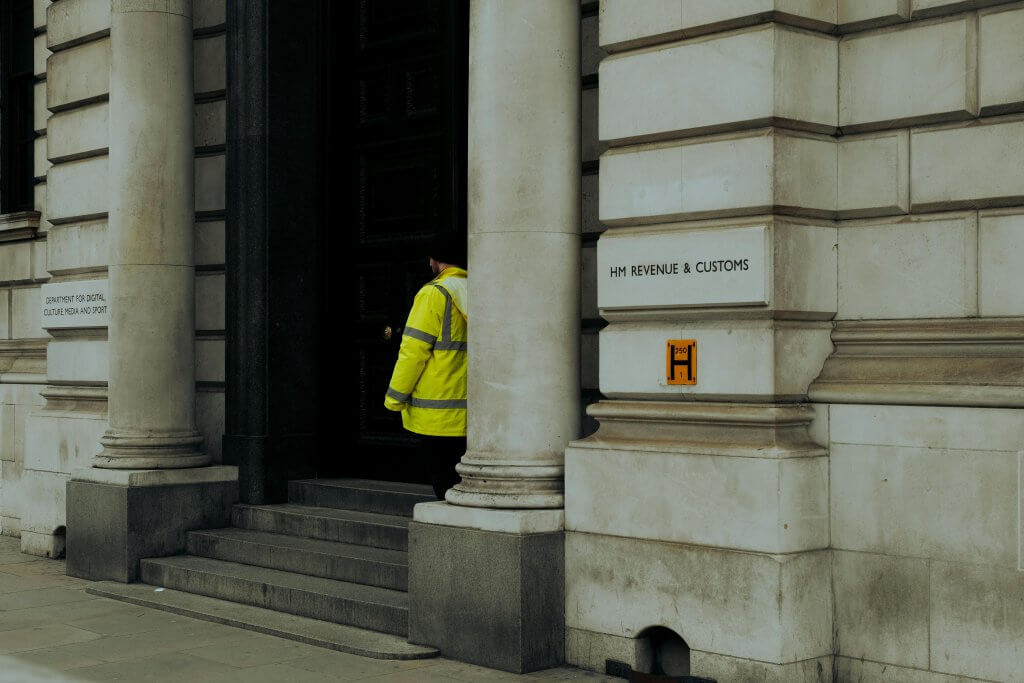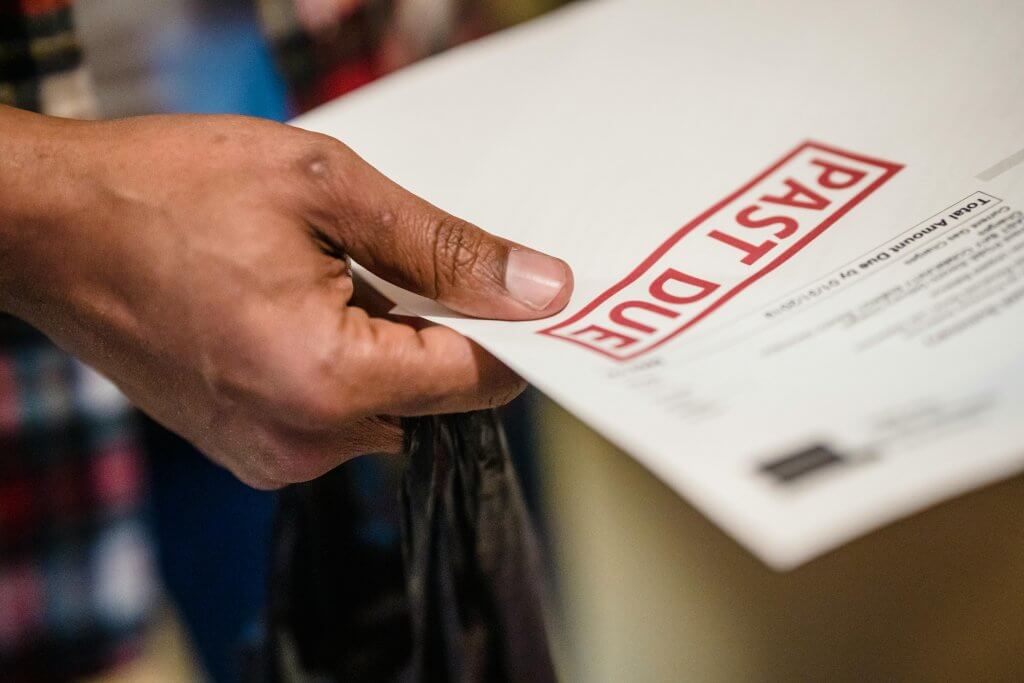‘Striking off a company’ is the process of dissolving it or closing it down, by removing it from the Companies House register. You may choose to strike-off your company if the business is no longer trading, if there’s no more need for the company structure or if the director(s) want to close it to save costs.
If there are no complicating factors, the process is relatively straightforward. The director(s) must apply to Companies House to have the company struck off the register, after getting a special resolution from the shareholders, settling any outstanding taxes and debts, and filing final company accounts.
Once approved, Companies House will publish a strike-off notice in the Gazette. After three months, the company is dissolved and formally struck off. At this point, it ceases to exist as a legal entity.
There are some situations when a company strike-off can be suspended, which we’ll explore in this article. If you’re looking for immediate advice on why your company strike-off might be suspended, our licensed insolvency practitioners are ready to help.
Main reasons a company strike-off can be suspended
1. Objections from creditors
Creditors owed money by the company can object to the strike-off if debts remain unpaid. This is why it’s important to make sure that all outstanding debts are settled before attempting a company strike-off. Employees owed wages or contractors owed for services can also object on similar grounds.
Striking off can also be suspended if there’s an ongoing legal claim or proceedings against the company. You need to make sure all claims are resolved before you go ahead with the company strike-off.
2. Outstanding taxes or VAT owed
HMRC can object to a company being struck off if taxes or VAT are still owed. This prevents companies from trying to avoid their tax obligations by dissolving the company.
When a company applies for a strike-off, a notice is published in The Gazette. HMRC has three months from the publication date to object, if taxes are owed. If HMRC does object, the strike-off can be suspended. The company then needs to pay the owed amount in full, or make an arrangement with HMRC to pay in instalments. This is called a Time to Pay arrangement.
If the company can resolve the tax debt, the objection is usually withdrawn and the strike-off can carry on. But if it’s unable to pay, HMRC can petition to have the company wound up by court order. This is most likely to lead to the compulsory liquidation of the company. Any value in the company’s assets can be released through the liquidation and used to pay the debt as much as possible.
3. Unpaid Bounce Back Loan (BBL) or Covid Business Interruption Loan (CBIL)
The Government loan schemes provided a vital lifeline to many UK businesses during the pandemic. But the continued economic uncertainty has meant that thousands of these businesses are now struggling to make their BBL or CBIL repayments.
If you have either of these loans outstanding and attempt to close with money owing, Companies House, working with other Government organisations, has the power to suspend the strike-off and investigate the director(s) for attempting to avoid paying their debts.
There have been many director’s disqualifications and even prison sentences handed out as a result of this.
4. Non-compliance with statutory requirements
Companies House may suspend a strike-off if the company hasn’t complied with statutory requirements. Example are filing annual returns or accounts. In this case, you must ensure that all outstanding documents are submitted to Companies House before the strike-off can proceed.
Avoiding a company strike-off being suspended
There’s some best practices you can follow to ensure a smooth and legal process:
- Make sure VAT, corporation tax, PAYE and any other taxes are paid and filings are up to date.
- Pay creditors, suppliers, employees and any other outstanding bills.
- Cancel or transfer any licences held by the company.
- End all contracts and agreements legally.
- Sell distribute or otherwise deal with any remaining company assets.
- Close company bank accounts.
- Confirm the company has ceased trading and is not carrying on business.
- Check for any threatened or pending litigation
- Review if the company has any remaining liabilities.
- Notify all relevant stakeholders, like shareholders and employees.
Following these best practices shows due diligence and guards you against objections or claims that could disrupt the strike-off process. This is where seeking professional advice from a licensed insolvency practitioner can also help you to avoid any issues with your strike-off.
If you’re looking for immediate advice on why your company strike-off might be suspended, our experts are ready to help.
Consequences of a strike-off being suspended
Striking off a company when there’s complicating factors, like those explained above, can lead to serious consequences. The Government may open an investigation into potential wrong-doing by the director(s) and impose penalties, if it finds the company was shut down to avoid taxes, creditors or other legal obligations.
The Insolvency Service has the power to investigate dissolved companies and the director(s) involved. If misconduct is uncovered, the director(s) can face fines or disqualification from running companies for up to 15 years. The Government may also seek to recover money owed by the improperly struck-off company.
Liquidation as an alternative to striking off your company
Liquidation can sometimes be a preferable alternative to striking off for companies facing insolvency.
It provides comprehensive debt resolution
Liquidation is a formal insolvency process that involves the orderly winding up of a company’s affairs, including the selling of its assets to pay off creditors. It provides a structured framework for dealing with all outstanding debts.
Striking off, on the other hand, is a less formal method of closing a company and doesn’t in itself resolve outstanding debts or claims against the company. This can lead to problems for directors if creditors later pursue their debts.
There’s more legal protection for directors
Liquidation is a process managed by a licensed insolvency practitioner, who takes over the company’s affairs. This ensures that the liquidation is carried out appropriately and in accordance with the law, providing legal protection for directors against accusations of wrongful or fraudulent trading.
Striking off doesn’t have this formal oversight. Directors who opt for striking off without properly settling the company’s debts or obligations could potentially face legal challenges or personal liability for the company’s outstanding debts.
Creditors’ claims are dealt with fairly
In liquidation, all creditors are treated according to statutory rules and there’s a clear framework for making claims against the company. This ensures a fair and transparent process for everyone involved. With striking off, there’s no formal mechanism for dealing with creditors’ claims, which can lead to unfair treatment of creditors and potential legal disputes.
A good reputation is preserved for future trading
Opting for liquidation can be seen as a responsible decision by company directors to handle insolvency in a legal and orderly manner. It may positively impact the directors’ reputation and their potential to manage or direct future enterprises.
If a company strike-off is used inappropriately, to avoid paying debts for example, it could damage their reputation and affect future opportunities. It could also lead to disqualification from acting as a director in the future.
Getting help with your company strike-off
The vast majority of companies are able to go ahead with their strike-off with no issues. However, it’s crucial for company directors to be aware of the potential obstacles, so that they can take any action necessary to avoid them.
If a strike-off is suspended, the company directors must continue to carry out their legal obligations and address the reasons for the suspension. Failure to do so can have significant consequences for the company’s directors, shareholders and creditors.
If you consult our licensed insolvency practitioners before you make the decision to strike-off your company, especially if you have a BBL or CBIL, we can help you address any issues promptly and help you to comply with your legal requirements.
If you think your company could benefit from the advice of a licensed insolvency practitioner, our expert team is on hand to take your questions. We don’t have a call centre. Instead, when you get in touch you’ll speak to someone who has the expertise to give you the answers you need. We’ll explain your options and you’ll decide on the best way forward.




